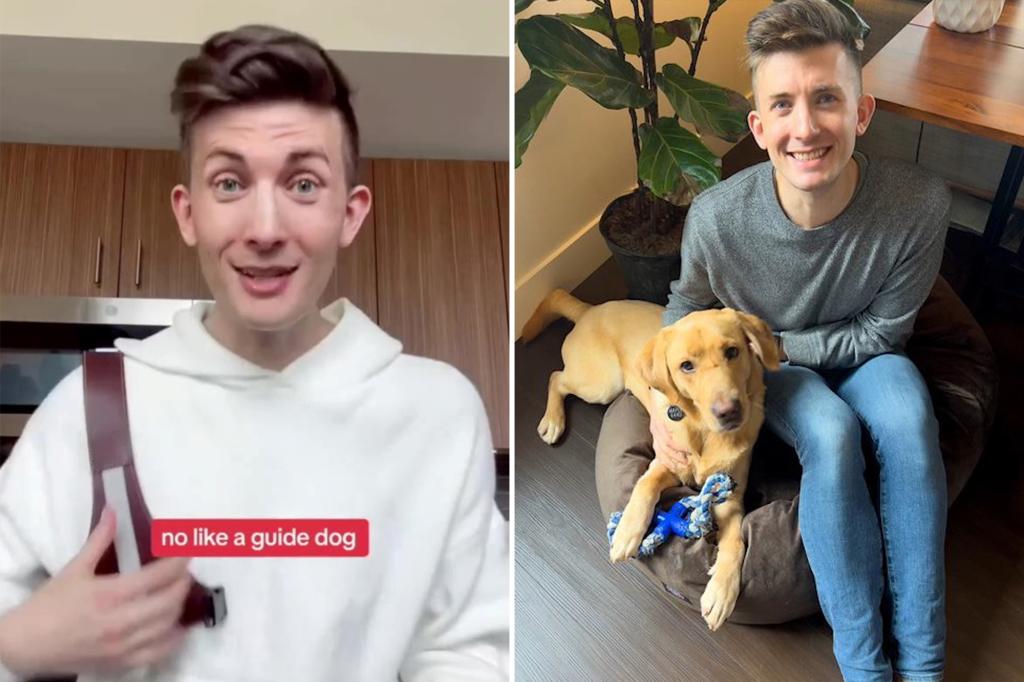A blind artist and his guide dog were kicked out of a Seattle restaurant after a worker accused him of faking his blindness. Paul Castle, who is legally blind, entered the restaurant with his service dog, Mr. Maple, but was immediately met with skepticism from a worker who questioned the legitimacy of his blindness. Castle insisted that Mr. Maple was a guide dog for the blind and displayed the dog’s designated harness, but the employee was still not convinced, stating that Castle did not look blind.
Castle explained that he had less than 10 percent of his vision, describing his vision as looking through a straw with no peripheral vision and the rest of his visual field full of static. The employee still did not believe him and refused to allow him to stay in the restaurant. Castle offered to return with Mr. Maple’s paperwork, but the employee threatened to call the police if they came back. Castle, along with his husband, runs a TikTok account where they share their experiences as blind individuals to raise awareness about blindness.
The Americans with Disabilities Act prohibits businesses from discriminating against individuals with disabilities, including those who require service animals. The law aims to ensure equal access to goods and services for people with disabilities. Businesses are not allowed to request documentation for service animals, and these animals do not have to wear any vest or harness to indicate their purpose. When someone with a service animal enters a place of public accommodation, businesses can only ask two questions to determine if the animal is required due to a disability and what tasks it has been trained to perform.
Castle decided not to take legal action against the restaurant that kicked him out, as he wanted to use his experience for educational purposes. After his TikTok video about the incident went viral, Castle reached out to the restaurant where he spoke with the manager who was sincerely apologetic. The manager promised to provide better training for employees to prevent similar incidents in the future. Castle hopes that by sharing his story, people will become more aware of the challenges faced by individuals with disabilities and the importance of accommodating them in public spaces.


